
Alumni Award Winners
p. 5


p. 5
We have had some beautiful days of late summer and, now, early fall on the Victoria campus. Especially as the late afternoon light cascades onto the buildings around us, the quad and campus grounds provide a stunning setting for students to congregate, to meet each other, and feel fully a part of this unique academic and social community. The fine weather has created more and more opportunities for the staff and faculty to re-encounter each other face-to-face and to chat informally, back on campus together after over a year of most working remotely. As I walk through the campus and speak with students and colleagues, it is clear that these serendipitous encounters, our respectful presence together in such an inspiring place, are an essential part of the fabric of Victoria. It is uplifting to be back in the physical spaces where the magic happens.
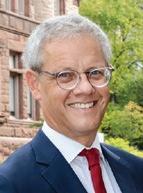
This fall we are cautiously restoring life on campus. The outlook for the pandemic is getting brighter, but students, staff and faculty are still dealing with the challenge of a lifetime. They have stepped up to the challenge with respect for themselves and for others, and with empathy, perseverance, and creativity. We have all stepped up together. Learning at a large university can be daunting. At Victoria it is intimate, often highly personalized and based on relationships. We draw on the humanity, energy and creativity of those around us. Our learning community is anchored in meaningful personal encounters among students and faculty and staff, in a pursuit of intellectual advancement and discernment. These person-to-person relationships are themselves a mode of learning, a mode that facilitates cultural awareness, emotional intelligence, self-acceptance, and judicious decision-making. The alchemy of these interactions cannot be replaced. That is why Victoria University strives to provide an atmosphere of dialogue and mutuality, both in the classroom and out of it, where relationships of respect and responsibility are sustained.
How do people experience the community that is Victoria? This is one of the central questions that animates Victoria University’s new Strategic Framework. The framework’s four pillars—Belong, Encounter, Explore and Transform—correspond to four crucial ways that people experience our remarkable working, living and learning community. Explore describes the aspirations for our academic programs, Encounter sets out a vision for our campus. Transform details transformative opportunities for our students. Fundamental to all of these aspects of engagement is Belong, with the commitment that Victoria provides an especially strong and inclusive community.
Twenty-five years ago, when I was appointed to the Faculty of Arts & Science at U of T, I found my place at Victoria College, enjoying the camaraderie of colleagues who were dedicated teachers and inspiring members of staff. For the last seven years, as president, I have come to appreciate ever more profoundly the many ways in which Victoria University provides a supportive community, committed to the fundamental ideals of a transformative higher education experience. As I prepare for the summer of 2022, when I will step down from the presidency and resume my life as a professor and fellow of Victoria College, I look forward to discovering further ways to contribute to this extraordinary community.
In this issue of the Vic Report, you will find people who, like me, discovered that Vic is an exceptional place in which to belong. There are stories of family legacy, of alumni who have distinguished themselves over a lifetime and, more recently, in the immediate period following their graduation. There are stories of extraordinary volunteers like this year’s recipient of an honorary doctorate, Blake Goldring Vic 8T1. All of those profiled found their sense of belonging at Vic and this allowed them to explore possibility, to encounter new ideas and new learning, and to transform their lives.
As I write this message, my heart is warmed to see students once again on campus, interacting with each other, with staff and faculty, even if still in a somewhat distanced way. Nevertheless, I can see that sense of belonging—especially for our first-year students—unfolding before my eyes.
We, each of us, belong to this extraordinary place, Victoria University. In the perplexing pandemic period in which we still find ourselves, and now as we imagine the brighter outlook to come, I find this to be a great gift.
Autumn 2021
Volume L No. 1
Published under the authority of the Board of Regents of Victoria University in the University of Toronto.
Publisher: Victoria University
Editor and Managing Editor: Jennifer Little Vic 9T5, Manager, Marketing and Communications
Copy Editors: Frank Collins and Louise Yearwood Vic 8T6
Design: Randall Van Gerwen
Cover: Vic Dons, Melinda
Hector Vic 1T9 and Adam Machkouri Vic 2T3.
Photography by Horst Herget.
Vic Report is sent to all alumni, faculty, associates and friends of Victoria University.
Published two to three times a year; circulation 24,000; ISSN 0315-5072.
Publications Mail Agreement No. 40741521
Send letters and undeliverable
Canadian addresses to:
Vic Report
c/o The Victoria Alumni Office
150 Charles Street West Toronto ON M5S 1K9
Tel: 416-585-4500
Toll-free: 1-888-262-9775
Fax: 416-585-4594
E-mail: vic.alumni@utoronto.ca
Website: www.vicu.utoronto.ca
Do we have your correct address?
Please send your updated address, phone number and e-mail address to the Victoria Alumni Office.
Please notify us if the graduate named in the address is deceased (enclose obituary or equivalent) and we will remove his/her name from the mailing list.
If you would like to write to Vic Report, please e-mail vicu.media@utoronto.ca
Victoria University respects your privacy and does not rent, trade or sell its mailing lists.
Victoria University has named Cynthia Crysler Vic 9T0 as its new chair of the Board of Regents. She succeeds Lisa Khoo Vic 8T9 in this position.
Crysler graduated from Vic with majors in commerce and criminology. She then went on to pursue legal studies at Western University and University College London for her LLB and her LLM. She was called to the bar in 1996 and is a partner with the law firm Cavalluzzo LLP where she leads the pensions and benefits group.
“During my undergraduate degree I took a few courses in law and enjoyed the nature of the analysis,” says Crysler. “The area of law I focus on now is a highly regulated environment, with complex legal issues as well as broad policy issues, including retirement income and security.”
Before being named chair of the Board of Regents, Crysler served on the Board’s pension committee. “My previous experience on this committee will help inform my work as chair,” she says. “As I assume this new role, the Board is facing a number of challenges and opportunities. There is a real need for the Board to help Victoria University through the next stages of a post-COVID world. I also look forward to working with the Board to support President Robins’ strategic framework.”
The Board of Regents also will be busy this year as it undertakes a search for the next president of Victoria University. “We have governing policies in place to guide our search,” says Crysler. A committee has been formed that is made up of members of the community—students, faculty, staff—with the goal to have an array of perspectives on the presidential search
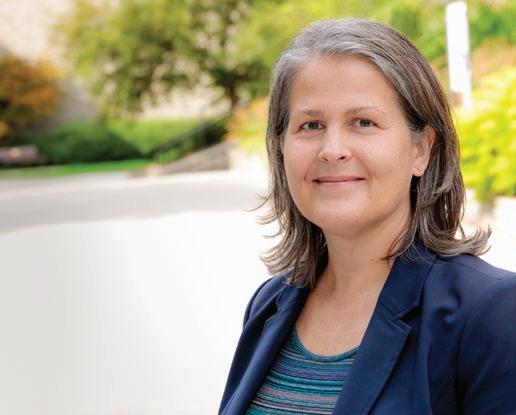
committee. “We will also review what the role of president should look like for the years ahead,” says Crysler. “It’s an exciting time to be chair of the Board of Regents.”
In accepting the role of chair, Crysler says, “I’m looking to maintain the great strides the Board has made over the past few years. There is so much uncertainty right now because of the COVID-19 pandemic that, in all honesty, it’s hard to predict the initiatives that the Board of Regents might have to undertake. Whatever the future may bring, though, it’s great to be part of such a warm and welcoming community.”
Do you know a Victoria College alumna/us who is distinguished for their extraordinary contribution to such areas as:
• Business
• Politics
• Education
• Culture
• Religion
Please submit your nomination to h.herscovici@utoronto.ca.
The Victoria College Distinguished Alumni Award, created by the Alumni of Victoria College Executive, is presented in recognition of a graduate’s lifetime achievement. The scope of their contribution may be at the local, national or international level.
Applications must be received by December 31, 2021.
Ring in the holidays with the Victoria College Graduates Holiday Lecture (formerly the Graduates Christmas Luncheon)!
Join Professor Anne Urbancic, co-ordinator of the Vic One program, for a special, virtual lecture on Sophia Loren as both cook and cookbook writer.
Saturday, December 11 11 a.m.–12 p.m. Register by December 8 at https://my.alumni.utoronto. ca/2021holidaylecture or call 416-585-4500 or 1-888-262-9775.
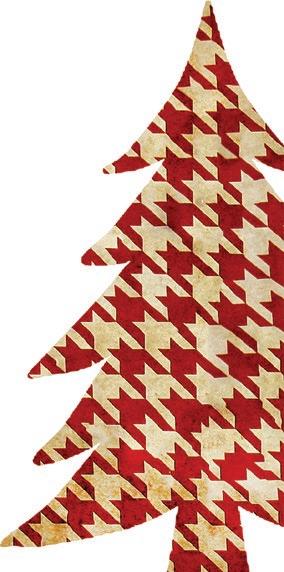
When Jamie Le Vic 2T1 graduated this past June, she wore a ring and a University blazer from the Class of 1962. The blazer and ring were a gift from Joyce A. Ballagh Vic 6T2’s family—Le’s sister is married to Ballagh’s grandson. Ballagh passed away in the summer of 2020—about a year prior to Le’s convocation. Honouring Ballagh’s memory on the date of her own graduation only added to the life moment for Le: “In the short time that I knew Joyce, she was an inspiration to live a life full of travelling, to be adventurous no matter how old you are, to be in the present moment and to embrace every interaction.”
Seeing Le in her mother’s blazer was particularly meaningful for Ballagh’s daughter, Nancy: “In a moment that brought tears to all our eyes, Jamie declared that she would proudly wear both items to her own graduation in 2021. My sister and I couldn’t have asked for a more perfect landing place for these sentimental items.”
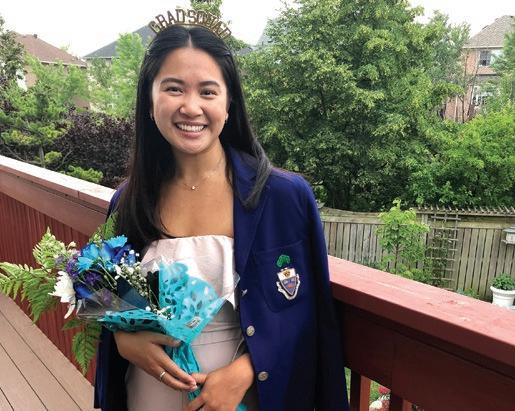
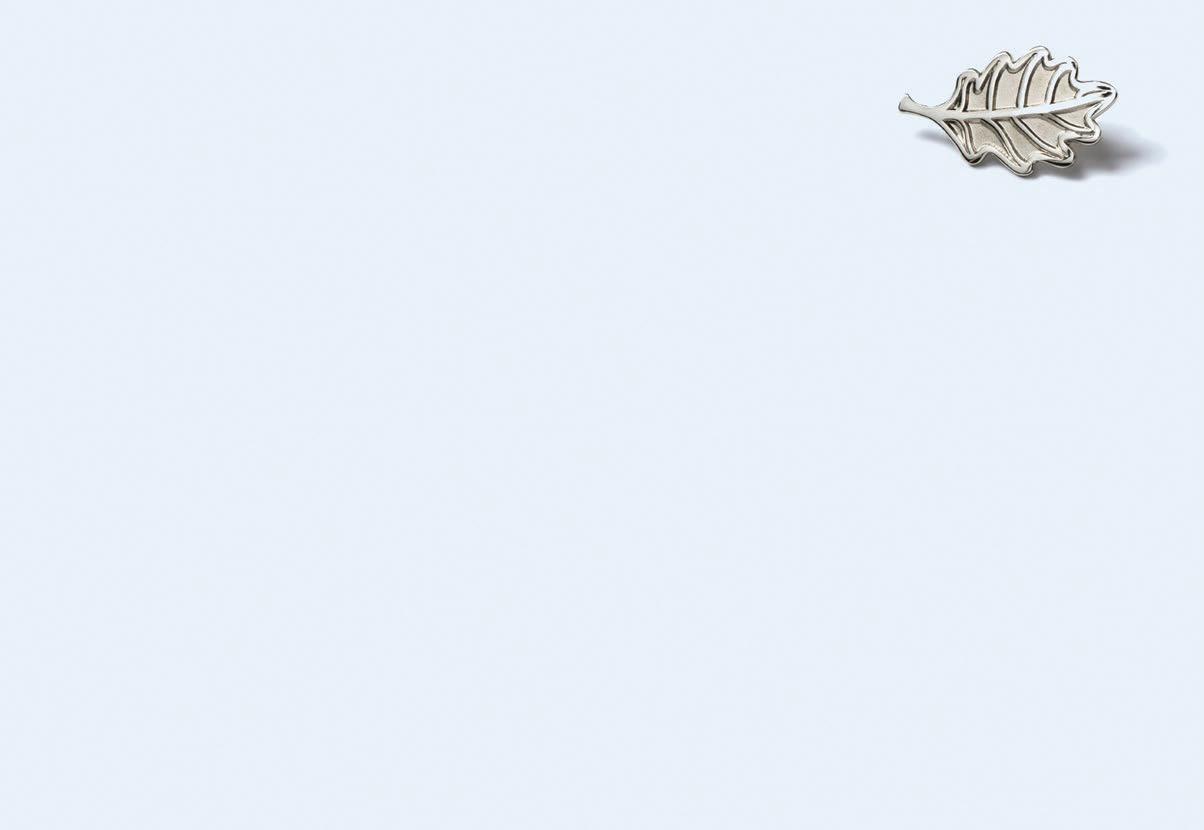
Astrid-Maria Ciarallo Vic 0T8, Greg Daly Emm 1T6, 2T1 and Jade Huguenin
Vic 1T4 are recipients of the 2021 Arbor Awards for their volunteer work. Congratulations, to all this year’s recipients!
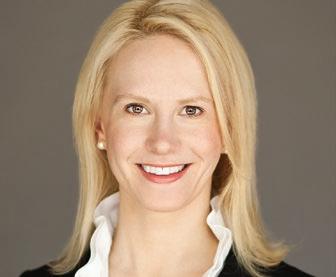
Astrid-Maria Ciarallo has been a dedicated volunteer and, most recently, president of the Alumni of Victoria College (AVC) for several years. She spearheaded the development of the AVC’s prestigious Emerging Leader Award for young alumni, and has acted as host at many key alumni events, participating every year since the event’s inception as an alumni mentor at Vic’s “Life after Vic” speed-networking workshop.
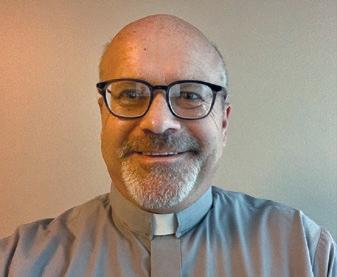
The Reverend Greg Daly has contributed for many years to the Emmanuel College Alumni Association (ECAA) with tremendous enthusiasm. As president, he was instrumental in leading the committee to form policies around the consideration of EDI (equity, diversity, inclusion) principles when recruiting volunteer members to the ECAA executive
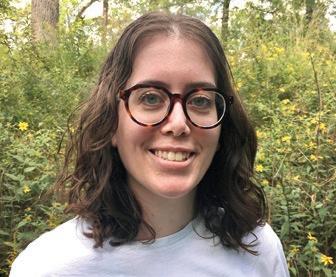
Jade Huguenin joined the Board of Regents in 2017, serving in the areas of governance, university affairs, nominations and property. Her contributions in assessing the Board’s annual survey, with special emphasis on its diversity, as well as producing an annual diversity report that guides future nominations to the Board, have been outstanding.
Albert Oung Vic 8T3 has been named the 2020 Distinguished Alumni Award winner for his extraordinary contributions over a lifetime of professional experience. Vic also recognizes this year’s Emerging Leader Award recipients for notable achievements in their field of endeavour before the age of 40. This year’s Emerging Leaders are Sima Atri Vic 1T2, Ivana Dizdar Vic 1T5 and Jesse Sperling 0T9. Congratulations to all our winners! We hope to celebrate this year’s recipients, as well as the 2019 recipients, at a special event in the spring or fall of 2022, as pandemic restrictions allow.

The AVC is thrilled to announce this year’s recipient of its prestigious Distinguished Alumni Award, Albert Oung Vic 8T3. While at Victoria College, Oung earned a BA in commerce and economics. He has since worked as a green entrepreneur, activist and visionary. Oung has 38 years of environmental, social and commercial experience. His expertise is in the “green economy,” where he is actively transforming and commercializing common practices into a sustainable and responsible business model.
As the founder and CEO of the Green Inc. Group of Companies, Oung works to foster and promote the development of green capital, green technologies, green tourism, renewable materials and energies, and waste management industries. He and his group of companies have won various CSR and sustainable business awards, innovative leader awards and green entrepreneur awards, including the first Asian company to win the Cradle to Cradle Award, all while complying with the United Nation’s 17 Sustainable Development Goals and ESG (Environmental, Social & Governance).
Oung is a strong supporter of charity organizations in Hong Kong, Canada, China and ASEAN countries. He has also founded and led several NGOs, including the World Green Organisation, Green Institute, Hong Kong ASEAN Friendship Association, Hong Kong Myanmar Chamber of Commerce and Organising Committee of the World Green University. His past contributions and accomplishments are being recognized by his recent appointment as chairman of the Green Economy Task Force of the Sustainable Business Network of the United Nations Economic and Social Commission for Asia and the Pacific (UNESCAP). He has also been invited to be an executive council member of the UNESCAP/ESBN and member of the Digital Economy and Banking & Finance Task Force.
Oung dreams big. He has developed his idea of “greenism” by adopting a holistic approach in providing integrated green solutions with the right values. Since 1992 he has been improving his green business model by prioritizing sustainability and ESG objectives to resolve problems economically. He also used his experience to help other social and business leaders prepare for future challenges through leading education and training programs.
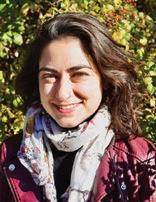
After graduating from Vic, Sima Atri attended Harvard Law School. Since graduating from law school, she has defended Indigenous protesters, striking workers, and other marginalized peoples in need of help, such as Black Lives Matter protesters. Atri has also co-founded a new, legal, non-profit organization dedicated to defending associations of marginalized people, called Community Justice Collective. CJC has been busy since its founding, defending people threatened with eviction during the COVID-19 pandemic.
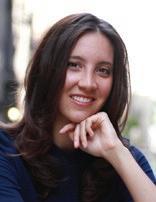
Ivana Dizdar has gained international attention as an academic, curator and artist, becoming a leading emerging voice on the relationship between art and politics. Among her many achievements is directing a not-for-profit art gallery in Toronto and acting as the Leadership Fellow of the Women’s International Leadership Program in New York City. Dizdar is devoted to the urgent task of diversifying the canon of art history and expanding the discipline’s limited geography. She has made important contributions to the discourse on the intersection of art and activism, particularly the role of the artist and art historian in de-colonial theory and practice.

Jesse Sperling’s time at Vic laid the foundation for a career that, to date, has been marked by professional excellence and by significant contributions in particular to the global lesbian, gay, bisexual and trans (LGBTQ+) human rights movement. While working for Save the Children, he was invited to write the organization’s first-ever flagship report on inequality which outlined public discussion of issues specific to LGBTQ+ children. He has worked for the U.K.’s Kaleidoscope Trust since 2016, where he has played a critical role in helping to shape the charity into the U.K.’s foremost organization advocating for the human rights of LGBTQ+ people globally.
In 2020, Bader Philanthropies, Inc., made a significant gift to Victoria University to support a new series of bursaries named the Bader Opportunity Awards which offer financial support to students from priority Toronto neighbourhoods. The University has been fortunate to receive outstanding philanthropic support from the Bader family over many years. Isabel Bader Vic 4T9, Hon. 9T5 and her late husband, Alfred Bader’s, contributions to Victoria University have had a lasting and significant impact on the University’s ability to attract and retain exceptional students from diverse backgrounds. Indeed, awards named for Isabel Bader make up, by far, the largest number of named awards at Victoria College. Bader Philanthropies, Inc., which made a leadership gift of $1M toward Vic’s Scholars-in-Residence program in 2018, is committed to issues of racial justice and equity, and has generously provided funding for the new Bader Opportunity Awards.
First-year student, and recipient of a Bader Opportunity Award, Noah Rudder, has big dreams. He plans to major in international relations, with a double minor in classics and drama. He is working hard to earn a spot on the dean’s list and already has his eye on post-graduate studies. “I would like to continue my education for the purpose of working towards global peace and security, whether it be for a humanitarian or intergovernmental organization,” he says.
Thanks to Bader Philanthropies, Inc., Rudder is able to follow his dreams. As a way to address issues of equity, diversity and inclusion—all priorities named in Victoria’s recently-published Strategic Framework—Victoria has for some time been examining the needs of students coming to campus from priority neighbourhoods within the City of Toronto, and from racialized and underrepresented groups, including the BIPOC (Black, Indigenous, people of colour) community. Victoria University is making efforts to ensure that these underrepresented groups, in particular feel no barriers toward attending the University, provided they meet the academic requirements for admission.
“I think it is immensely important that Vic provides support for racialized students,” says Rudder. “And to be honest, I didn’t see much support for students like me at the other universities to which I applied. These awards will have a very positive impact on many students.”
The Bader Opportunity Awards are designed to be as flexible as possible so that students get support where they need it most. For instance, students have many more costs than tuition, including residence fees, meal plans, transportation costs and media costs. Any of these expenses may be covered by the award. The Bader Opportunity Awards have come at a time when student need is at an all-time high, due to the COVID-19 pandemic.
“We are thrilled about the new Bader Opportunity Awards and the possibilities they extend to so many deserving students
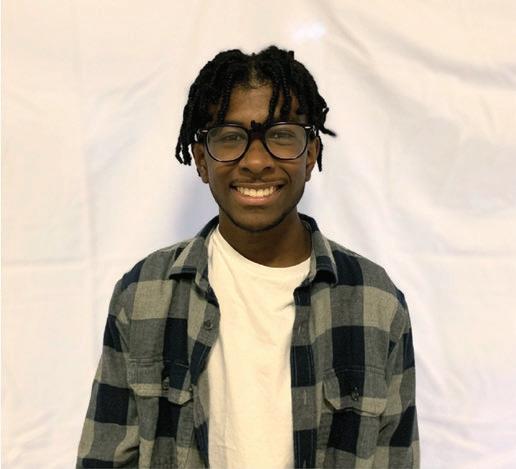
from the Toronto area,” says Yvette Ali, registrar. “Victoria University and its alumni have a deep commitment to social equity and thanks to the generosity of Bader Philanthropies, Inc., we are able to provide significant financial support ($5,000 to $15,000 per year) to reduce the barriers for racialized and underrepresented students to attend Victoria College. One of the unique aspects of this award is that it provides the option for students to stay in residence for their first year so that they truly can be immersed in our campus and community life; an opportunity that can be difficult for many who face financial constraints. We also hear repeatedly from students receiving renewable awards that these awards allow them to focus on their studies. Not only do such awards reduce the need for many hours of part-time work, but also they alleviate the financial pressures on their families.”
For Rudder, a Bader Opportunity Award is key to his attending Victoria College. “This award is extremely important for me and my family. I have two siblings currently at U of T so there are a lot of expenses,” he says. “Also, my dad is a live musician so the pandemic hit his industry hard. The financial aid that this award provides cannot be overstated. It has allowed me to attend the best school in the country, and study subject matter that I love. It opened the doors of the University to me, giving me the opportunity to fulfill all of my academic aspirations. The mere existence of an award of this type is not offered everywhere, so for it to be available at Victoria College inspires an immense amount of appreciation for everything it stands for.”
“We are so happy to have in our incoming class this year six Bader Opportunity Award winners and we are looking forward to further expanding the program to support many deserving and impressive students like Noah,” says Ali.
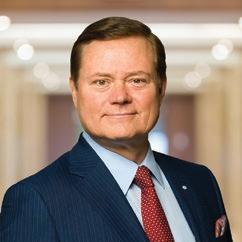
Victoria University was pleased to confer a Doctor of Humane Letters, honoris causa, upon philanthropist and business leader, Blake Charles Goldring, C.M., M.S.M., CD, LL.D., CFA, on October 6, 2021.
A 1981 graduate of Victoria College, Goldring is lauded for both his business acumen and his philanthropic contributions. He sits on a number of not-for-profit boards related to the causes he champions. Goldring is a board member and chair of the C.D. Howe Institute’s investment committee and is a board member for the Canadian Film Centre, the Jeanne Sauvé Foundation, and Libraries and Archives Canada. He is the immediate past chair of the Sunnybrook Health Sciences Centre, and former vice-chair of the Toronto Symphony Orchestra. He is on the advisory boards of The Walrus, The Canadian Defence Association Institute, and The Mosaic Institute.
Most notably, Goldring is the founder and chair of Canada Company, a non-partisan organization he founded in 2006. Canada Company serves veterans and their families through various charitable endeavours including providing scholarships to the children of fallen soldiers, and offering civilian hiring opportunities for vets and their spouses.
In his professional life, Goldring serves as the executive chairman of AGF Management Limited, an independent, publicly-traded asset management firm. His remarkable career at AGF spans more than 30 years. Goldring is a member of the Toronto Society of Financial Analysts, a CFA charter holder and a Fellow of the Institute of Canadian Bankers.
In 2018, Goldring was named a Member of the Order of Canada for both his contributions to philanthropy and to business, most especially for his work ensuring the well-being of veterans and their families. He has also been named to the Order of the Diocese by the Anglican Diocese in Toronto in 2013, and received the Award of Merit from B’Nai Brith in 2011 for his community service. For this latter work, Goldring also received the Vimy Award from the Conference of Defence Associations Institute for being a “Canadian who has made a significant and outstanding contribution to the defence and security of Canada and the preservation of (its) democratic values.” Goldring had the privilege of serving as the first-ever honorary colonel for the Canadian Army, retiring in 2017, having served a total of 12 years with the Canadian Armed Forces.
Goldring is a remarkable friend and keen supporter of Victoria University. He has been an active alumni volunteer, a proud Vic parent and a member of the Advisory Council to

the President during Vic’s Imagination Unbound campaign (part of U of T’s Boundless Campaign) which raised $70M, exceeding its goal by $10M. Goldring’s personal contribution to the campaign was a $4M gift that he and his sister, Judy Goldring Vic 8T7, gave towards the renovation and expansion of the new student centre which now bears the Goldring name. Both Blake and Judy were commuter students and were eager to help create a much-needed hub for student activity on campus. The Goldring Student Centre, which opened its doors in 2013, doubled the space of the 1952 Wymilwood and quickly created a central location for Vic’s many studentcentred activities, becoming the heart of campus life. In the last campaign, Goldring also gave to the Vic One Paul Gooch Stream, and named an endowed professorship in Vic One’s Norman Jewison Stream with a further significant gift.
“Through his vision and generous support Blake Goldring has profoundly impacted student life at Victoria University,” says William Robins, president of Victoria University. “The Victoria community has been particularly strengthened as a result of Blake’s concern for first-year students, commuter students, and students who struggle to find their place during their undergraduate years. His vision for what Vic can be is exemplified in his philanthropy.”
“I am truly humbled to receive this honorary degree, especially given the distinguished list of previous honorees and Vic’s extraordinary alumni family which has collectively and individually contributed so much to its communities, to Canada and, indeed, to the world,” says Goldring. “I would never have thought that, 40 years after receiving my undergraduate degree, I would be donning a gown again to receive this incredible honour.”
Goldring received his honorary degree as part of Victoria University’s annual Charter Day celebrations that took place virtually this year on Wednesday, October 6, 2021. Charter Day commemorates the granting of Victoria’s Royal Charter by King William IV on October 12, 1836. See pages 8 and 9 for more on this year’s celebrations.
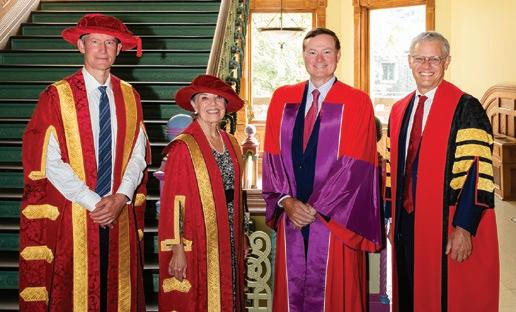

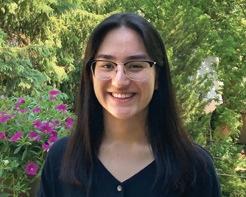
Since 1895 Charter Day has been an annual occasion for celebration at Victoria University, with the presentation of scholarships and other academic awards to Victoria College students. It commemorates the granting of Victoria’s Royal Charter by King William IV on October 12, 1836.
As happened last year, this year’s festivities were celebrated online. Chancellor Nick Saul, C.M., Vic 9T0 hosted the annual Chancellor’s Council Charter Day Luncheon, a special gathering of Chancellor’s Council, Principal’s Circle, Ivy Society and Victoria University Heritage Society members. This event included a discussion between the chancellor and Dr. Kwame McKenzie, a practising psychiatrist, who is the CEO of the Wellesley Institute, director of Health Equity at the Centre for Addiction and Mental Health, and a professor in U of T’s Department of Psychiatry. Normally, following later in the evening after the Chancellor’s Council luncheon, the Charter Day Convocation takes place, which includes a special reception for student-award recipients and the donors of their awards. This year, an online version of the Charter Day Convocation took place in the afternoon. Victoria College students continue to inspire the community with their academic successes and extraordinary activities and achievements beyond their lives on campus. Victoria’s motto, abeunt studia in mores (studies pass into character), can be seen in Vic students who show exceptional generosity and compassion, whether peer mentoring, leading student organizations on the Vic campus, or volunteering off campus in their communities. Whatever their pursuits Vic students engage in all that they do with dedication and enthusiasm.
Beloved by students and alumni alike, Anne Urbancic is the first Mary Rowell Jackman Professor of Humanities in Vic One’s Northrop Frye Stream and donor of the Urbancic O’Handley Scholarship. To know Professor Urbancic is to recognize her dedication to her students and her strong belief in education. Her own parents’ schooling was “interrupted by the vicissitudes of the two world wars and the confusion afterwards that propelled them to Canada.” While Urbancic was the first in her family to attend university, she was strongly encouraged to do so by her parents who had instilled in her a love of reading and of learning. “My parents’ lives in Canada were not easy; however, all five of their children went on to excellent and fulfilling careers,” she says. As she continued into graduate studies, she was grateful for the scholarships she received. As Urbancic watched her daughters continue their studies and graduate from university, she looked for a way to “honour their achievements and to help future students who require financial aid and encouragement for all their efforts in coming to post-secondary studies.”
One such student who has benefitted from the generosity of the Urbancic O’Handley family is Hana Sharifi, a third-year student pursuing a double major in physiology, and ecology & evolutionary biology with a view to applying to medical school. In addition to her studies, she plays an active role in Women in Science and Engineering (WISE U OF T), where she helps to promote women and minoritized students in STEM (science, technology, engineering and mathematics). At Vic she has served as a student mentor, helping first-year students adjust to the pressures and complexities of student life. Sharifi received the award for her academic excellence in the course of her studies.
Urbancic is impressed with Sharifi’s commitment to both scholarship and equity at the College. “I can honestly say that I am delighted by the calibre of students, such as Hana, who have received the scholarship thus far.” For her part, Sharifi is appreciative of the scholarship as it will help her to “continue pursuing my academics and reach my full potential as a student; I am extremely grateful,” she says. “Receiving this award has solidified my desire to work my hardest in my studies and to try to learn as much as I can during my years as a student, both academically and socially. It makes me feel very grateful and thankful for the opportunities I have had at Victoria, and makes me feel like the learning I’m doing now as a student will help me make important contributions to society in the future.”

Anishaa Balaji, Recipient
“Dale Anne viewed each day with joy and passion,” says her sister Jane Vic 7T4, “and she leapt into the fray with vigour and the heart of a knight. I cannot think of a better legacy than to encourage today’s Vic students to do the same.”
The legacy of Dale Anne Freed Vic 7T2 is memorialized at Vic through her family’s generosity. She is fondly remembered as a seeker of truth, having worked as an investigative journalist and as a humanist in spirit. “I think it would please Dale Anne to be helping students,” says Jane. A longstanding and generous supporter of the College, Jane established the Dale Anne Freed Bursary and the Dale Anne Freed Scholarship following her sister’s passing. She did so in partnership with her sister Lynne Vic 7T7 and other members of the Freed family.
Jane has continued to support both awards in the years since their establishment. She is also a member of Victoria University’s Heritage Society, having confirmed a provision for Victoria in her estate plans, and is a Permanent Member of the Victoria University Chancellor’s Council. “We are stronger and more confident because of our University,” says Jane, looking back at her time as a Victoria College student. For the Freed sisters, including Lynne’s daughter, Alexandria McCorkindale Vic 1T3, Victoria College was a touchstone. “Vic changed us,” she says, “preparing us for our life’s travels and challenges.”
Third-year student Anishaa Balaji is this year’s recipient of the Dale Anne Freed Scholarship for her impressive academic performance in her second year. She is currently pursuing a double major in physiology and immunology with a minor in psychology. It is important to her that she continue to engage in extra-curricular activities and interests, and so she always makes time to read for pleasure. She loves to dance, and, for the last 10 years, has practised an Indian classical dance called bharatnatyam. She has found that learning this has helped her to develop and value discipline and hard work, which in turn have helped to propel her towards academic success by shaping her habits. After graduation, she hopes to pursue a career in healthcare. “Receiving this award motivates me to continue to put my best foot forward in my academics. I feel thankful to have received this award and it inspires me to further my academic career with more determination.”

Mina Ali, Recipient
John C. Field Vic 7T8 and his siblings, along with friends and former students, established the Eleanor and G. Wallis Field Scholarship in memory of their parents, Eleanor Margaret (Woodger) Vic 4T7 and G. Wallis (Wally) Field Vic 3T5, who met and fell in love at Vic while pursuing their graduate studies in German. They dedicated their academic careers to their students and to their studies in German and its literature. Wally was a full professor at Victoria College and U of T and a member of the Department of Germanic Languages & Literatures from 1949–1979; Eleanor taught German at St. Clement’s School, an independent girls’ school in Toronto, until her retirement. A constant desire for both Eleanor and Wally was to see their students thrive and excel and to maintain Victoria College as a home of academic excellence. “We are so pleased that the scholarship has benefited so many Vic students, including Mina Ali this year, since the scholarship was established almost two decades ago,” says John.
This year’s recipient is Mina Ali, who was born in Pakistan and immigrated to Canada with her family as a young child. She lives in Brampton, Ontario, and commutes to the Victoria College campus by the GO Train. Currently in her fourth year, she is pursuing a double major in philosophy and German, and a minor in history with a particular interest in Canadian history. Ali found herself drawn to studying continental philosophy in her first year and so she became actively involved on campus with the Philosophy Course Union. She has remained with the union for over three years now and currently serves as co-president of the organization. She also takes part in the Ekphrasis reading group, which focuses on aesthetics and the philosophy of art. She hopes to attend law school and work in immigration law to give back to her community. For her overall A-standing in German, Ali has been awarded the Eleanor and G. Wallis Field Scholarship. “This award is a significant achievement,” she says, “and I am grateful to the Field family for providing this award and for the lighter financial burden for me as I work to complete my undergraduate studies.”
After an undergraduate research paper has been submitted and graded, its life cycle is considered to be complete. At Victoria College, however, students can submit their best papers for publishing in one of over 50 scholarly journals authored, edited and published by undergraduate students.
One such journal is The Undergraduate Journal of American Studies (JAS) in which Thomas Siddall Vic 2T1 was published and for which Khushi Nansi Vic 2T1 served as co-editor-in-chief.
Nansi decided to apply to the JAS as co-editor for the same reason she pursued American Studies—because of “the desire to listen to silenced or purposely hidden stories and bring those same stories to the forefront.” The JAS is comprised of stories of “displacement, discovery, instability and change.”
Although publishing a journal at any time requires significant effort, doing so while working and attending University remotely offered unique challenges. Nansi started working with the publication in her third year on the assistant editors’ team, but wanted to become more involved in her final year.
“It was difficult that we could not meet as a team, have organic discussions, or celebrate the launch of the JAS. And there were, of course, many unexpected bumps and delays along the way, as everyone was dealing with tumultuous days, every day.”
Nansi insists, however, that the end result made the process—even during COVID—worthwhile. “I am very pleased with what we managed to accomplish.”
Opportunities for undergraduate research experience also helped with her decision to apply to graduate school. In the fall, Nansi will begin her Master of Science in architecture in the Aga Khan Program in Islamic Architecture at the Massachusetts Institute of Technology.
Thomas Siddall has one of their undergraduate papers published in the most recent edition of the JAS. Siddall originally submitted their essay, “The Way Boys Do:
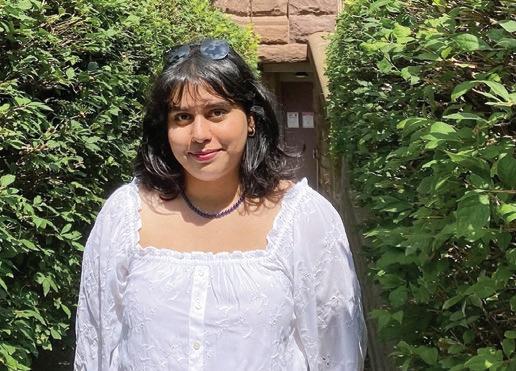 Khushi Nansi
Khushi Nansi
Transforming White and Asian American Citizenships,” in 2019 for a seminar course: Queer Migrations and Refugee Politics. Two years later Siddall decided to publish the paper because they needed to clarify their research ethics for potential graduate studies.
“The care that the co-editors gave to each paper’s author has elucidated my own thinking on care as an academic practice. The final publication that the team put together was far beyond my expectations,” says Siddall.
“Being at Vic was a good choice for me. Vic fosters a creative space which makes a lot of social science and humanities research possible.” Siddall is putting the finishing touches to their degree in international relations and contemporary Asian studies, and are due to graduate in November. They will return to U of T in the fall for their master’s in human geography and will explore the intersections of economic globalization, contemporary art and queer transnationalism in Mainland China and Taiwan.
Running a journal can be daunting, as the publication process is complicated. However, Victoria College is committed to helping undergraduates with their publications. “The Scholars-in-Residence program at Vic offers a workshop on publishing in undergraduate journals,” says Ira Wells, academic programs director. Wells has noticed a significant shift in the undergraduate research landscape. “There has been a notable increase in students who understand the value of gaining publishing experience in undergraduate journals.”
Alexandra Rahr, Bissell-Heyd Lecturer in American Studies and assistant professor agrees: “An undergraduate publication record is impressive and demonstrates a willingness to go beyond the norms of class work and pursue an idea for its own sake. Intellectual curiosity meets professionalization on this one.”
Rahr assists with the JAS publication process and offers students both advice and support. “It’s great training for post-graduate work as well as for the workplace—clear communication and the ability to identify and fix writing problems is an invaluable skill,” say Rahr.
“American Studies is an interdisciplinary field, and the journal exemplifies this academic breadth. The project gives students a chance to do American Studies work, rather than just read about it. Incisive, thoughtful and timely papers are published in the journal, and we’re very proud of the contribution the journal allows students to make to American Studies as a discipline.”
Growing a young publication is difficult, but both Rahr and the students involved have found the experience extremely rewarding. “It’s a real pleasure to work with students outside the classroom,” says Rahr. “I like to see them expanding their skills—especially the editing, communication and critical analysis skills that are so transferable to workplaces and to post-graduate studies.”
When the worldwide pandemic forced most school systems to switch to online learning, Florida resident, Susanne Diatzikis, realized it afforded a unique opportunity to return to studies at the University of Toronto. Susanne realized that upgrading the degree she had completed in 1988 would open up additional opportunities for her in the U.S. Online course options were limited when Diatzikis had initially contacted the Office of the Registrar and Academic Advising several years prior.
In June 2021, Diatzikis and three other Victoria College students were recognized as completing or upgrading a degree that they started before 2000. While the Faculty of Arts & Science at U of T no longer offers the 15-course bachelor’s degree, those registered before this change in policy was first implemented can still complete a three-year (15-course) degree with the option to upgrade to a 20-course degree.
Victoria University’s registrar, Yvette Ali, noted growing numbers of re-registering students this past year. “One of the unexpected consequences of COVID-19 was the huge increase in the number of returning students from outside the city and country,” she says. “Most decided to take advantage of the online courses available allowing them to complete their undergraduate degree from any location. It has been heartening to see these students re-engage with us at Victoria College. It was our pleasure to welcome them back to continue their academic journey.”
Diatzikis enjoyed the online format in the past academic year. “I admit technology is not my strong suit, but with my family’s support, and the patience and understanding from course instructors and professors, the experience of online learning was a success,” she says. “I felt very connected to my professors and was extremely impressed with the quality of the lectures. The very few times a professor accidentally became muted, or technology was interrupted, in no way hampered the high level of teaching that was offered during this past academic year.”
Diatzikis’ greatest challenge returning to full-time studies after three decades was staying on top of weekly readings and assignments. “As a full-time student I think it is important to be careful about how many other work or volunteer obligations you might have. I found I had to allow ample time to work through some of the readings and assignments. Staying organized and learning how to say ‘no’ is how I would characterize my approach to this past academic year. One of the online Vic sessions talked about how to prepare for online learning and suggested that students take physical activity breaks and consider downloading readings in case of internet disruptions. These were useful tips. Although I was fortunate not to lose internet this past year, I found having readings in my files saved time from having to go back into Canvas, the student portal, or to search a particular site to source it again.”
Diatzikis noted other differences when comparing her recent fine art history studies with her U of T experience
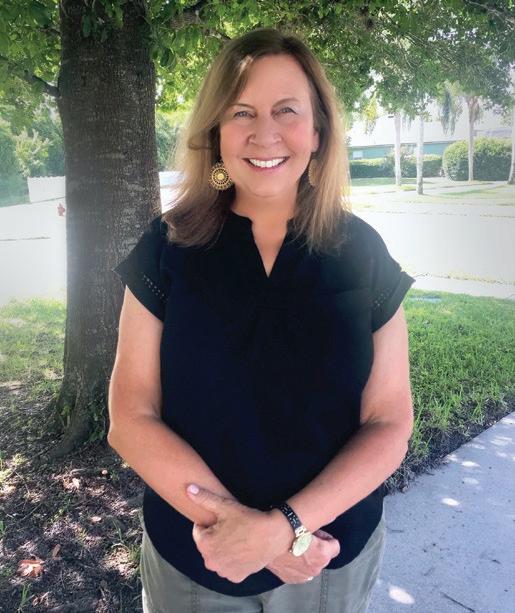
three decades earlier. “The significant changes include the variety of courses now offered, online research, and the ease of writing essays using software. While I was not able to make use of curbside pickup for sources, I enjoyed the challenge of searching online sources. Course instructors and professors were able to provide students with tips and various websites.”
Students who have been away from their studies for an extended period sometimes need to sharpen their learning and writing skills. In addition to support offered at the course level, other resources are available. Appointments customized to assignment research requirements are available through librarians. The Vic Writing Centre instructors help students to develop their capacity to plan, organize, write and revise papers. Learning strategists support learners at all stages of their development, from those working to improve their grades to high performers figuring out next steps.
For mature students who are considering re-entering university, Diatzikis shared the following insight and encouragement. “Do it! I definitely feel that I was rusty, but I think I kept up with my younger peers and applied myself more than I had when I was a student many years ago. I discovered that I love research, whereas I did not feel as passionate about this as a younger student.”
Diatzikis’ commitment is evident in the excellent results she achieved this past challenging year and the successful completion of her degree upgrade. Congratulations, Susanne!

Unlike the assassination of JFK or 9/11, there is no public iconography of COVID-19. Each of us carries around private memories of this pandemic. Personally, I won’t forget the apocalyptic tableau on the Bay Street subway platform on the afternoon the world shut down in March 2020: business people in suits and heels clutching their computer monitors and coffee mugs and framed pictures of children. It was like the whole world had just been fired.
In those early COVID days we saw images of doors being welded shut in Wuhan. The papers quoted medical experts saying that an effective vaccine could take years, or that it might never come at all. Our local playground was sealed off with police tape. We sanitized our groceries. The talk of a collapsing supply chain spooked us into stocking up on rice and beans and other imperishables. Friends in Alberta were stocking up on shotgun shells. I remembered a line from Cormac McCarthy’s novel The Road, about a father and son wending their way through a shattered world. “The right dreams for a man in peril were dreams of peril and all else was the call of languor and of death.”
That March, I taught my first Zoom class to 20 mostly blank, muted boxes. A few brave students raised their virtual hands, but the experience was mostly bereft. I was lecturing to a piece of my own furniture. In a small seminar class you can sometimes tell that a student needs to speak by the way they shift in their seat or dart their eyes. By comparison, this virtual environment felt like a low-fi imitation of life. You’d make a joke and hope muted students were laughing somewhere behind the silence.
One afternoon I returned to Vic to pick up some books. The campus felt less empty than it did. Only the unused pumps of hand sanitizer hinted at the cause of our desolation.
Pedestrians had begun walking down the middle of our street, because there were no cars, and because other human beings were now instruments of contamination: “pestiducts,” to use John Donne’s word. “As sickness is the greatest misery, so the greatest misery of sickness is solitude,” Donne wrote in a meditation on illness. “Solitude is a torment which is not threatened in hell itself.”
As the pandemic wore on, each new “wave” arriving to outdo the last, we gained fluency and confidence with our
online teaching. It is no secret that Victoria College is blessed to draw upon ferociously devoted faculty members who will do anything for their students. Professors who had regarded online teaching as a travesty were now using breakout rooms, monitoring the chat, engaging their students with the new tools. Zoom, Teams, Blackboard Collaborate—we learned all the tricks of all the trades. While no replacement for the in-person experience, online teaching could work surprisingly well as a substitute.
Yesterday, I taught my first proper in-person class since March, 2020—a Vic One seminar on John Williams’s novel, Stoner, about a farm kid who intends to study agriculture at university, but finds himself in the thrall of literature. One of the implicit lessons of Stoner, which takes place between 1891 and 1956, is that the vocation of imaginative education carries on, even amidst global calamity. While much of the world was descending into war, Stoner was falling in love with literature, “becoming someone other than who he had been . . . he knew that the poem of Milton’s that he had read or the essay of Bacon’s or the drama of Ben Johnson changed the world which was its subject.”
En route to class, my students would have passed two tablets flanking the entrance of Old Vic, erected in the memory of the dozens of students of this College who gave their lives in the World Wars. The 154 names inscribed on those tablets offer some sobering perspective on our current troubles, and remind us that teaching through tragedy is a tradition in itself. Our in-person teaching experience took some getting used to: the flesh-and-blood hands were at first slower to rise than the virtual versions.
But it didn’t take long to get back into the swing of embodied education. Stoner, written by a university professor who would never use a computer or send a text message, captured my students’ imaginations, inviting them to become something other than who they had been. It felt different, of course. The masks on our faces were a reminder of all we have been through, that it is not over.
But we are back. A little rusty, a little shaken, but steadying. Ira Wells is academic programs director for Victoria College. He recently wrote the book Norman Jewison: A Director’s Life (Sutherland House, 2021). Jewison Vic 4T9, Hon. 0T1 was the chancellor of Victoria University from 2004–2010.
I. Ross Bartlett Emm 9T2, author of Gathered for Preaching: A Sourcebook for Lay Leaders and Clergy (2021), explores many key practices and ideas that beginning preachers need to consider and experienced speakers may benefit from revisiting. He challenges us to be the very best we can be so that God’s people may hear the good news for their lives. Believing that we can all master the skills of clear communication, he invites the reader on a journey of discovery.
good graces and save the club—and Chandra’s job prospects—from ruin. This hilarious 21st-century farce plays at Alumnae Theatre, Toronto, from January 26 to February 6, 2022.

In the newly revised second edition of Quantitative Trading: How to Build Your Own Algorithmic Trading Business, quant trading expert Ernest Chan Vic 8T8 shows you how to apply both time-tested and novel quantitative trading strategies to develop or improve your own trading firm.
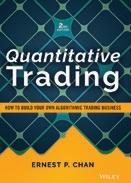
Lynne Golding Vic 8T4, author of The Innocent, has published two sequels to that book: The Beleaguered and The Mending (2021). The book series is inspired by stories told to Golding about the life of her great aunt, Jessie Roberts Current Vic 1924. In the final book in the series, The Mending, the protagonist ‘Jessie Stephens’ attends Victoria College. Kate Jaimet Vic 9T2 is excited to announce the release of her new play Mixed Doubles. Stuck in an unpaid internship at a tumbledown community tennis club, 23-year-old Chandra must prove her mettle by raising enough money to fix the roof before the city inspector shuts the club down. But when her boyfriend Vin unwittingly causes a rift between a baby-boomer donor and her philandering husband, the young couple must embark on a mad, crossdressing scheme to win back the donor’s
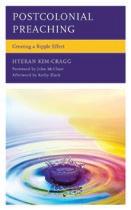
HyeRan Kim-Cragg Emm 0T6, author of Postcolonial Preaching: Creating a Ripple Effect (2021), argues that preaching is the act of dropping the stone of the Gospel into a lake, making waves to move hearts and transform the world wounded by colonial violence. The ripple effect serves as a metaphor to guide a style of preaching that takes postcolonial concerns seriously: Rehearsal, Imagination, Place, Pattern, Language and Exegesis (RIPPLE). Kim-Cragg explains each “ripple” in this approach and exercise of creating and delivering sermons. The author delivers fresh insights while drawing on some traditional homiletical perspectives in the service of a homiletic that takes the reality of racism, migration, and environmental degradation seriously. This book contributes to the very first wave of the application of postcolonial scholarship in preaching.

Brandon Marlon Vic 0T0, Vic 1T2 is the author of Essentials of the Land of Israel: A Geographical History (Vallentine Mitchell Publishers, 2021). The book is a comprehensive compendium for ready reference. As a geographical history of the Land of Israel, it foregrounds the most significant political and natural features of the landscape (borders, capitals, mountains, valleys, rivers, lakes, seas, deserts, forests) and the major biblical and historical events associated with them, and its unique value is in outlining and assembling all of these discrete categories in one convenient volume. Essentials of the Land of Israel is an exceptionally useful resource for scholars and laypersons alike.
Karen Burrows McKnight Vic 8T6 has written her first book: And Just Like That—Using Life Jolts to Create the Next Best Version of Yourself in Leadership and Life provides insight into how to take, embrace and work through challenging changes and transitions.
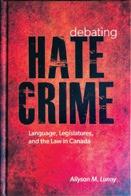
Allyson Lunny Vic 9T2, a York University associate professor, will hold the prestigious Endowed Chair in Criminology & Criminal Justice at St. Thomas University in Fredericton, N.B. during the fall 2021 term. Her new book, Debating Hate Crime: Language, Legislatures and the Law in Canada (UBC Press, 2017), is recognized as a leading work in the field. Drawing on critical discourse analysis, she argues that the parliamentary debates on hate crime and hate speech legislation reveal deeper concerns, trepidations and anxieties about victimization, rightful citizenship, social threat and moral erosion.
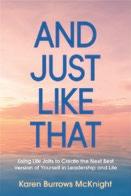
Burrows McKnight combines her expertise in the psychology of transitions and 20 years of coaching senior-level executives, with her own life experience to provide readers with an easy-to-follow approach to successfully navigating their current reality—a timely book to support people’s success in tackling the unprecedented change in lives and work brought on by the pandemic.
Bruce Meyer Vic 8T0 is the author of Toast Soldiers (Crowsnest Books, 2021). The book’s compilation of short stories focusses on individuals who find themselves presented with insurmountable challenges and despite the consequences they face, refuse to give in.

Fiona Moore Vic 9T7 has written Global Taiwanese: Asian Skilled Labour Migrants in a Changing World (UTP, 2021). This book started as a study of Taiwanese skilled-labour migrants in London, U.K., but the opportunity arose to do field research in Taiwan and in Toronto. Moore compares the immigration-hostile environment in London with the immigrationtolerant environment in Toronto and looks at the difference this makes to people’s work, lives and families, sometimes over multiple generations. This book is for anyone who’s interested in globalization and immigration, or in the way communities develop in cities such as Toronto.
On June 1, 2021 Joshua Brent Moskowitz Vic 1T3 successfully defended his dissertation and has been awarded a Doctor of Philosophy in Neuroscience from Queen’s University.
Lou (Taylor) Pamenter 6T2 reports that Furby House Books in Port Hope, which she purchased in 2011, has coped with the various lockdowns thanks to its loyal customers.
Gordon Postill Emm 8T0 is the author of a new memoir Called! A Longshot’s Story. The memoir has been described as “impressive and inspiring” by Kirkus Reviews. This delayed coming-of-age story intimately recounts Postill’s life from 1970–1980, a decade that pivotally shapes how the rest of his life will
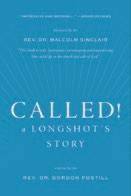
unfold. Initially a story of failure, self-loathing, addiction and deceit, it’s ultimately a story of grace, faith, hope and transformation. Postill graduated with a Master of Divinity degree from Emmanuel College in May 1980. He served congregations in Nova Scotia and Ontario before spending the last 24 years of his ministry providing spiritual care to hospice patients and their families in Florida and Massachusetts. He retired in 2015 to care for his beloved wife, Robin, diagnosed with early-onset Alzheimer’s. Learn more at www.gordonpostill.com.
Larry Proctor Vic 7T6, first-time author, has written What a Coincidence! (FriesenPress, 2021). The book is a collection of short, non-fiction stories, several of which are coincidences. The premise is that these stories we tell are a part of what defines us as individuals. It is light, casual reading that is intended to lead the reader to reflect on some of their own tales and enjoy a few chuckles along the way.
Julie Title Vic 1T5 is a Toronto-based folk singer and songwriter inspired by 1970’s folk, as well as 1990’s women songwriters, such as Aimee Mann and Mazzy Star. She is this year’s recipient of the Ontario Arts Council’s Colleen Peterson Songwriting Award for her song “Ghost.” The award was presented on September 25 during the Folk Music Ontario virtual awards weekend.
Peter R. Allen Vic 5T8, in Toronto, August 13, 2021.
James Allsop Emm 9T2, in Dundas, Ont., May 7, 2020.
Douglas B. Anderson Vic 4T8, in Whitby, Ont., November 8, 2015. Douglas Anglin Vic 4T8, in Toronto, June 29, 2021.
G.W. Armstrong Vic 4T8, in Toronto, August 28, 2021.
Mary-Ellen E. (Snell) Bridge Vic 6T6, in Georgetown, Ont., July 22, 2021.
Patricia A.R. (Smith) Broadhurst Vic 5T2, in Sarnia, Ont., July 27, 2021.
Dorothy E. (Bearden) Burnham Vic 4T4, in London, Ont., April 22, 2021.
John W. Burt Vic 5T9, in Toronto, September 24, 2021.
Douglas C. Calder Vic 4T7, in Kitchener, Ont., November 24, 2016.
Annabelle (Fasken) Cameron Vic 5T9, in Etobicoke, Ont., April 25, 2021.
Peter J. Chandler Vic 7T7, in Toronto, July 29, 2021.
Barbara J. (Sider) Clifton Vic 5T1, in Toronto, September 11, 2021.
Bruce A. Collier Vic 8T3, in Scarborough, Ont., August 17, 2021.
Robert E. M. Crease Vic 6T4, in Oakville, Ont., August 9, 2021.
David A. Cuthbertson Vic 7T1, in North York, Ont., May 27, 2021.
Antonio Di Bacco Vic 8T3, in Niagara Falls, Ont., July 12, 2021.
Shirley A. Dyck Emm 9T1, in Toronto, May 15, 2021.
Doris Jean (Scott) Dyke, in Toronto, October 8, 2021. She was a professor of Christian education at Emmanuel College from 1977 until her retirement in 1995.
Violet J. (Currie) Edney Vic 5T2, in Newmarket, Ont., August 25, 2021.
Lawrence G. Ellerton Vic 9T3, in Toronto, May 27, 2021.
Norman S.D. Esdon Emm 8T0, in Kingston, Ont., December 31, 2020.
Charles C. Ferguson Vic 5T6, in Guelph, Ont., February 22, 2021.
Roy Fischer Vic 6T2, in Toronto, August 13, 2021.
Robert (Bob) L. Flindall Emm 8T8, in Belleville, Ont., April 28, 2020.
Douglas P. Flint Emm 6T0, in Winnipeg, Man., September 14, 2021.
John Herbert (Jock) Galloway, in Belleville, Ont., July 27, 2021. He was professor emeritus in the Department of Geography (U of T) and was a valued member of the Victoria community for many years.
Hugh R. Hanson Vic 5T7, in Midland, Ont., June 17, 2021.
Terry C. Head Emm 1T2, in London, Ont., November 17, 2019.
James F. Ingham Emm 6T8, in Regina, Sask., June 19, 2020.
Joyce M. (McGahey) Ireland Vic 4T8, in Toronto, August 5, 2021.
Arnold B. Irwin Vic 4T9, in Toronto, August 12, 2021.
Noreen (Connell) Jacka Vic 6T1, in Toronto, Ont., July 20, 2021.
Edward J.R. Jackman Vic 6T2, Hon. 0T0, in Kleinberg, Ont., June 18, 2021.
C. Douglas Jay Vic 4T6, Emm 5T0, Hon. 9T9, in Mississauga, Ont., January 1, 2021. Jay was the principal of Emmanuel College from 1981 to 1990, and was the founding director of the Toronto School of Theology in 1970.
John D.V. Keown Vic 6T5, in Mississauga, Ont., July 30, 2021.
Valerie (Carson) Kilpatrick Emm 8T4, in Toronto, November 11, 2020.
Bo Jeong Kim Emm 9T4, in Windsor, Ont., June 9, 2019.
William J. Kissick Vic 5T5, in Toronto, July 10, 2020.
Adam J. Kositsky Vic 9T8, in Toronto, June 23, 2021.
E. Frazer Lacey Emm 5T6, in Port Perry, Ont., August 8, 2019.
R.H. Lang Emm 5T8, in Edmonton, Alta., May 23, 2021.
Jean E. (McIntosh) Lee Vic 5T8, in Toronto, August 30, 2021.
Harold (Hal) A. Lendon Vic 6T0, in Owen Sound, Ont., June 6, 2021.
J.M. MacDonald Vic 6T7, in Toronto, August 14, 2021.
Bruce I. Mactaggart Vic 6T3, in Toronto, May 20, 2021.
Nathan H. Mair Emm 5T1, in Charlottetown, P.E.I., August 13, 2019.
Wayne L. Martin Vic 7T7, in Oakville, Ont., October 13, 2020.
Marion Matthias Vic 6T5, in Newmarket, Ont., July 2, 2021.
William R. Maxwell Vic 5T6, in Toronto, May 15, 2021.
Joan (Peck) McDonald Vic 4T8, in Haliburton, Ont., August 16, 2021.
Elizabeth (Staples) McLeod Vic 5T3, in Toronto, May 28, 2021.
Joanne B. McMinn Vic 5T8, in Aurora, Ont., May 25, 2020
Barbara J. (Piper) McPhail Vic 5T1, in Toronto, September 14, 2021.
Charlotte Ann (Horning) Moore Emm 0T8, in Burlington, Ont., July 27, 2020.
Balwant A. Paradkar Emm 9T1, in Scarborough, Ont., January 31, 2021.
Robert J. Pirie Vic 5T4, in Hamilton, Ont., July 9, 2021.
Stewart Wallace Porteous Emm 5T0, in Etobicoke, Ont., April 21, 2020.
Eileen C.M. Prettyman Vic 4T8, in North York, Ont., June 15, 2021.
Russel E. Prouse Vic 4T4, in Brampton, Ont., May 9, 2021.
Jane E. (Bell) Reid Vic 6T6, in Cobourg, Ont., June 3, 2021.
Jean E. (Wood) Rider Vic 5T1, in Etobicoke, Ont., August 15, 2021.
Marion Gail (Hoaken) Rogers Vic 5T8, in Toronto, September 18, 2021.
Roy E. Schatz Vic 5T3, in Collingwood, Ont., September 30, 2021.
Carmen Viola Sergeant Emm 9T1, in Willowdale, Ont., September 25, 2020.
Allan Shaw Emm 5T8, in Unity, Sask., February 2, 2021.
James A. Snider Vic 6T1, in Albany, NY, January 15, 2021.
James R. Stevens Vic 5T3, in Guelph, Ont., June 11, 2021.
Adrienne (Sandford) Taylor Vic 4T9, in Toronto, July 18, 2021.
Martin Taylor Vic 6T5, in Toronto, September 25, 2021.
Susan J. (Simpson) Taylor Vic 6T6, in Ottawa, August 12, 2021.
Orpha (Taylor) Teasdale Vic 4T4, in Toronto, August 11, 2021.
Barry L. Thomas Vic 5T2, in Victoria, B.C., May 20, 2021.
Stavros Tsimikalis Vic 8T0, in Toronto, September 11, 2021.
Jennifer M. Wahlroth Vic 8T4, in Haliburton, Ont., May 25, 2021.
John A. Walcot Vic 4T7, in Guelph, Ont., July 22, 2021.
Arthur Waters Emm 5T3, in Guelph, Ont. June 14, 2021.
Helen C. (Ronnquist) Weston Vic 6T4, in Chichester, U.K., January 18, 2021.
Donna A. (Youngblut) Williamson Vic 6T1, Victoria, B.C., June 19, 2021.
Your Victoria College Annual Fund gift helps outstanding faculty like Julia Forgie Vic 0T5 to inspire the next generation of leaders at Victoria College.
Forgie feels a great sense of pride in her role as an assistant professor and program coordinator for Victoria College’s Education and Society Program. “It is a privilege to strive toward positively influencing the academic and professional lives of my students, in the same ways that Vic faculty did for me when I was an undergraduate,” says Forgie.
The sought-after Education and Society Program attracts students from diverse backgrounds and disciplines. Under Forgie’s leadership, students hone their capacity to work collaboratively and to demonstrate leadership in learning communities.
Your Annual Fund gift makes Forgie’s work possible and supports programs unique to Vic, such as Education and Society, Vic One, Scholars-in-Residence and Vic Ready. Your gift also supports the growing number of Vic students who qualify for bursary or scholarship support.
Perhaps you encountered someone who inspired you to learn or to lead during your time at Vic. Or perhaps today you are inspired by a student who is working on breakthrough research. Please channel that inspiration into positive change with your donation today.
Thank you for helping future leaders thrive at Victoria College!
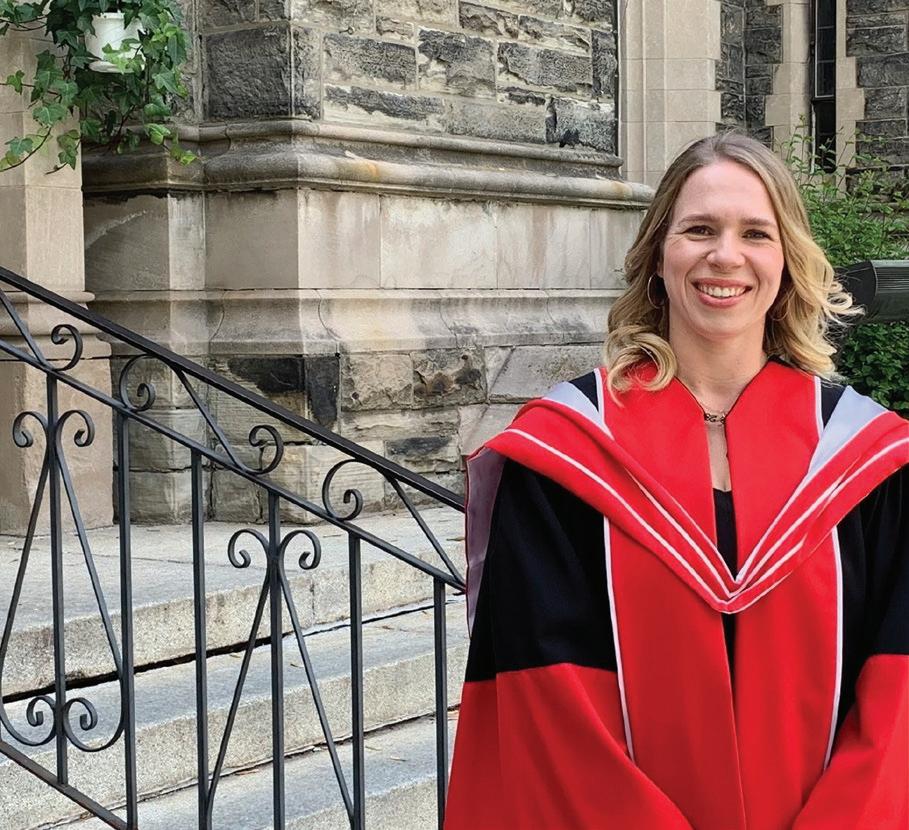
Donations by Mail: Cheque payable to Victoria College
Office of Alumni Affairs & Advancement
150 Charles Street West, 3rd Floor, Toronto ON M5S 1K9
Online Donations: my.alumni.utoronto.ca/vicaf
Donations by Phone: 416-585-4500/1-888-262-9775
Whether it is recognizing the impact of your education on your life and career, expressing gratitude for your University experiences, or paying forward the help you received from a bursary or scholarship, there are many reasons for choosing to remember Victoria University in your estate plans. Charitable bequests and other forms of planned gifts can help you plan your legacy, while providing financial benefits.
For more information on charitable bequests, other forms of planned giving, the five steps you should take to plan your legacy, or to receive a free Victoria University estate planning primer and workbook, please contact Sharon Gregory, associate director of gift planning, at 416-813-4050, or sharon.gregory@utoronto.ca.
All those who have made a provision for Victoria College or Emmanuel College in their estate plans are eligible to join Victoria University’s Heritage Society.
If you are considering a bequest to Victoria or Emmanuel, here is suggested wording:
I give and bequeath to the Board of Regents of Victoria University, Toronto, Ontario, the sum of $ or % or shares of my estate.